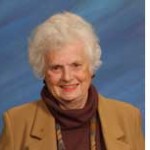By Natasha Josefowitz, Ph.D.

LA JOLLA, California — In the weekly meditation class here at White Sands, our teacher Elizabeth Hamilton talks about an existential crisis, like a fork in the road. Something within us is calling out for attention—old certainties fall away; things we’ve believed in or lived by no longer provide the comfort they once did; what we used to value seems stale. We are faced with doubt, feeling vaguely dissatisfied even when things are going okay, feeling ill at ease in our own skins. We wonder if this is all there is.
I have several friends in their seventies, eighties and nineties who can relate to these descriptions, questioning the purpose of their lives, aware that they are wishing to become more spiritual, but not sure what they mean by that. They are aware that they are getting close to the last moments in their lives when they can still re-invent themselves.
Some of them are free from work and family responsibilities and want to dream one last dream, but what is that dream? What remains on their bucket lists? What do they still need to do before they die? They are looking for some sort of completion or closure—though they may not be ready to close. This existential crisis is exacerbated by the number of their friends who have died as their own health is becoming a greater concern. They look in the mirror and see increasing wrinkles, thinning grey hair, and unexpected age spots.
Some feel that they are “has beens,” and wonder what they can still be. They question their sense of direction. I am not talking about a mid-life crises, which occurs when the children leave and they are left with an empty nest or feel dissatisfaction with a dead-end career or with a marriage that has lost its closeness. This crisis comes later in life. It is an existential crisis when people are dealing with new events such as retirement, widowhood, moving to a smaller space or to a senior community. There may be some new disabilities: diminished hearing and sight, a slower step, difficulty fathoming new technologies while needing to use them just too keep up with kids and grandkids.
Many of these feelings also resonated with me when I read Doron Lazarus’ book Don’t Mind if I Do: How to Transform Your Life with the Power of Jewish Mindfulness. At the end of each chapter, Rabbi Lazarus asks a question, and, as I started pondering each one, I came to the realization of how seldom we think about what motivates us in the choices we make. So following Rabbi Lazarus’ lead, I started looking for answers; I suggest you do the same. Here is a sample of ten questions we could all ask ourselves:
- What is your greatest purpose in life? How is your life lined up with reaching that potential?
- Think about the core of who you are. What do you really want in life, and what would you change?
- Think of one negative action in your life. Why do you do it? How does it affect your personality and your relationships with others?
- If you could change one personal character trait, what would it be?
- When do you feel pushed beyond your limits?
- What frustrates you and can you change your expectations?
- What or who are you jealous of?
- Do you desire recognition? What do you do to achieve it?
- How much does technology interrupt your life? Imagine your smartphone is pinging non-stop; can you ignore it?
- Envision your life coming to a point of completion. How does it feel?
Even though we may not have immediate answers, it is important to keep pondering these questions. In the pursuit of wisdom (it does come with age), we are learning to accept life as it is and not as we wish it would be. As we grow older we become less focused with ourselves and more concerned about others. We are better at rolling with the punches. We are finally realizing that we are not responsible for every negative encounter. No matter what our age, we are still a work in progress. And so like teenagers for whom the future is full of unknowns, we, too, can envisage making these last few years meaningful. As Socrates said, “The unexamined life is not worth living.” Once again, we have the freedom to be open to all kinds of possibilities.
© Natasha Josefowitz. This article appeared initially in the La Jolla Village News. Josefowitzz may be contacted via natasha.josefowitz@sdjewishworld.com